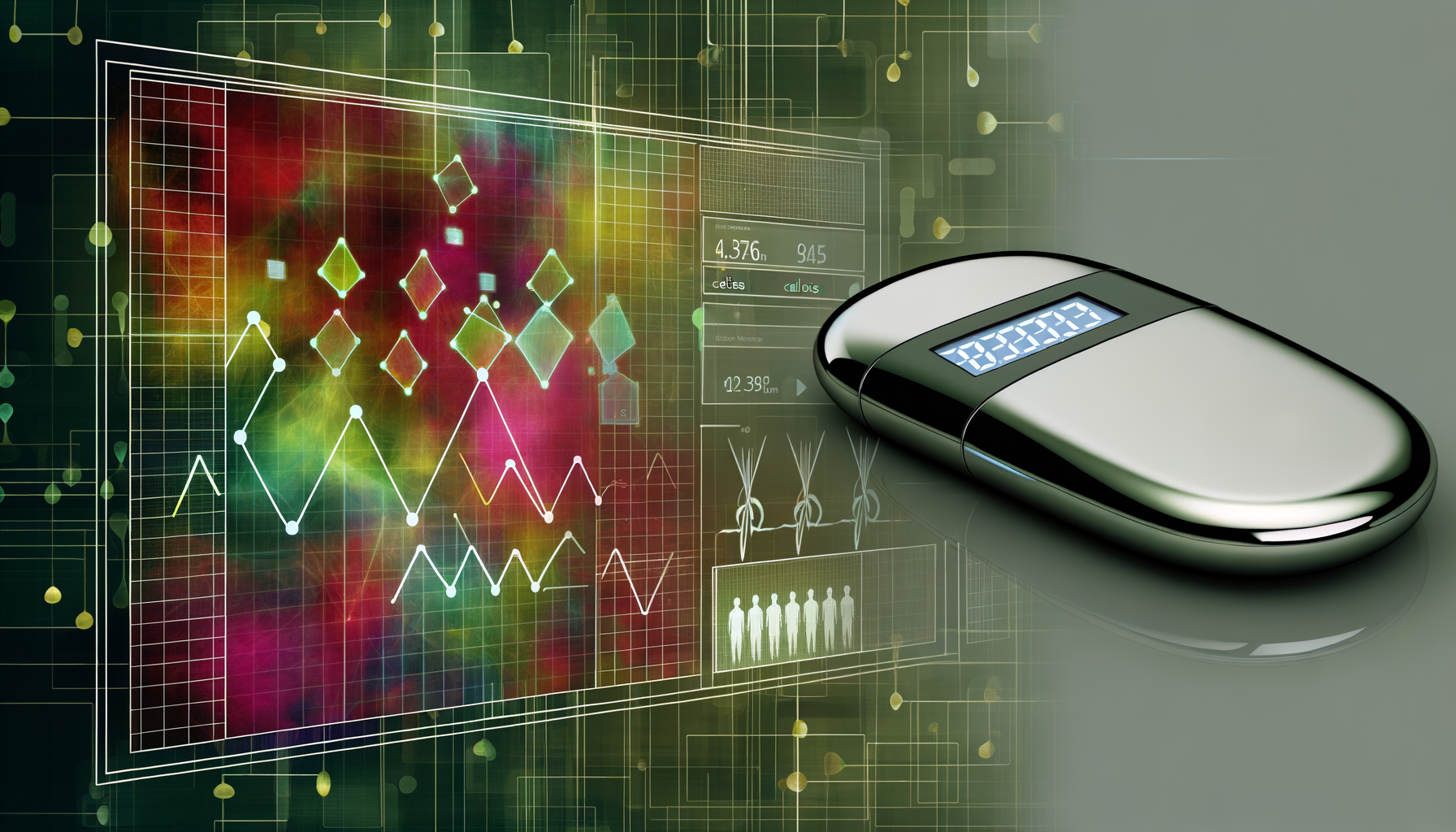Transforming Health: The Intersection of Bioelectronic Medicine and Calorie Tracking
In recent years, both bioelectronic medicine and calorie tracking have emerged as crucial components in the pursuit of optimal health. Bioelectronic medicine involves the use of electrical impulses to modulate the nervous system, potentially treating a variety of medical conditions, while calorie tracking is essential for managing weight and metabolic health. The integration of these two fields offers exciting possibilities for personal health management, particularly in the context of calorie management and metabolic regulation.
Understanding Bioelectronic Medicine
Bioelectronic medicine, sometimes referred to as bioelectronics, is an innovative field that focuses on treating diseases by directly interfacing with the nervous system. Techniques such as deep brain stimulation (DBS) and vagus nerve stimulation (VNS) are used to modulate neural activity to alleviate symptoms of conditions like Parkinson’s disease, epilepsy, and depression. This approach not only provides new therapeutic options but also offers insights into how our nervous system responds to electrical stimuli, which can influence metabolism and calorie regulation.
For instance, advances in bioelectronic devices can enable the continuous monitoring of vital health data, which can be transmitted to healthcare professionals for analysis and intervention more effectively. This capability can lead to more personalized and responsive treatments for metabolic issues.
Calorie Tracking: A Key Component of Metabolic Health
Calorie tracking is fundamental to managing weight and maintaining metabolic health. It involves monitoring the calories consumed versus those expended to ensure a balanced energy equation. Tools like Calorie Calculator Cloud provide users with personalized calorie intake recommendations based on their metabolic needs and activity levels. However, traditional calorie tracking methods can be time-consuming and prone to inaccuracies.
New technologies, such as wearable devices, are revolutionizing calorie tracking. Devices like the Healbe GoBe use bioimpedance to estimate calorie consumption automatically, reducing the need for manual logging. Another approach involves using accelerometers and photoplethysmography (PPG) sensors to estimate energy expenditure and calorie intake during physical activities.
Integrating Bioelectronic Medicine with Calorie Tracking: Potential Applications
Combining bioelectronic medicine with advanced calorie tracking offers several potential applications:
- Personalized Metabolic Regulation: By integrating real-time bioelectronic feedback with calorie tracking data, individuals can receive personalized recommendations for optimizing their metabolic function. This could involve adjusting calorie intake based on bioelectronic signals indicating metabolic rate fluctuations.
- Nerve Stimulation for Appetite Control: Techniques like VNS could be explored for regulating appetite and managing calorie consumption more effectively. Bioelectronic stimulation might help control hunger signals, making it easier to stick to a diet plan.
- Optimized Weight Management: Bioelectronic devices might provide a more accurate measurement of metabolic variables, such as resting metabolic rate (RMR), which is crucial for effective weight management. This integration could lead to more efficient calorie tracking and weight loss strategies.
Real-World Examples and Case Studies
A study involving the use of mobile indirect calorimeters showed that personalized metabolic feedback significantly improved weight loss outcomes by enhancing adherence to calorie tracking and adjusting calorie intake goals more accurately according to real-time metabolic needs.
Similarly, wearable devices like the Fitbit and Apple Watch integrate activity monitoring with calorie expenditure estimates, helping users maintain a balance between calorie intake and expenditure. Future bioelectronic integrations could enhance these capabilities by providing more precise metabolic feedback.
Future Directions and Challenges
While the integration of bioelectronic medicine and calorie tracking holds promise, several challenges must be addressed:
- Accuracy and Reliability: Ensuring that bioelectronic devices accurately measure metabolic variables and provide reliable feedback is crucial.
- Integration Complexity: Developing user-friendly interfaces that integrate bioelectronic data with calorie tracking apps is essential for widespread adoption.
- Regulatory Frameworks: Establishing clear regulatory guidelines for bioelectronic devices used in health management will be necessary to ensure safety and efficacy.
Conclusion and Moving Forward
The intersection of bioelectronic medicine and calorie tracking represents a new frontier in health management. By leveraging advancements in both fields, individuals can gain deeper insights into their metabolic health and make more informed decisions about their diet and lifestyle. As this technology continues to evolve, it is essential to address the challenges of integration and regulation while capitalizing on the potential benefits for personalized health optimization.
For those looking to enhance their health journey, exploring tools like Calorie Calculator Cloud can provide a solid foundation for managing calorie intake. Additionally, staying informed about the latest developments in bioelectronic medicine can help you stay ahead in your pursuit of optimal health.








